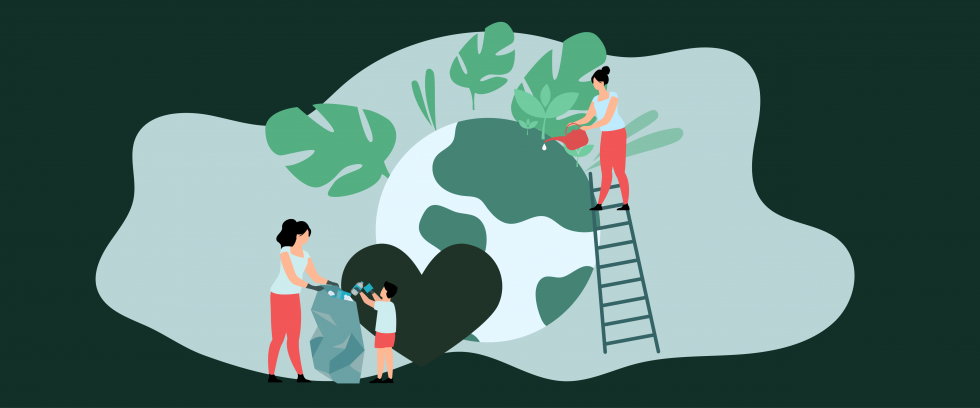Service to society
The Faculty of Arts of the University of Maribor (FA UM) is carrying out one of very interesting multidisciplinary pilot projects within the Reform of Higher Education for a Green and Resilient Transition to Society 5.0. The pilot project Zelen.kom focuses on one of the most crucial challenges in effectively facing the climate challenge - ways of communicating the planetary situation. One of the aims of the project is also to contribute to the building of a common understanding about terminology and concepts linked to environmental sustainability and the green transition in general.
The Zelen.kom project engages the university's internal, interdisciplinary resources to create various teaching methods, starting with understanding the needs of various stakeholder groups. The approach was very systemic from the beginning – the whole process began with a methodologically extensive study that explored the needs in the field of green transformation among students, companies and local government. The emphasis was on the perspective of the region in which the University is located in order to enable a more tailored University response. The research exploration also included searching for examples of good practice in communicating climate issues from other countries.
The interviews conducted during the study were in-depth and allowed to reach not only the superficial facts, but also the deeper, systemic causes of the current situation in all sectors. The researchers did not focus only on communication and linguistic aspects but tried to recreate mental models (way people construct their logic of thinking) in relation to the climate issue, so that the results could be used for various types of interventions.
Another example of well-established climate communication in practice is the work of an eminent representative of the academia, coming from the University of Ljubljana, Faculty of Biotechnology, Prof. Dr. Lučka Kajfež Bogataj. She was part of the Intergovernmental Panel of Climate Change that in 2007 was awarded the Nobel Peace Prize for their efforts to build up and disseminate greater knowledge about man-made climate change. Prof. Kajfež Bogataj has always been aware of the importance of providing quality information on climate change and its consequences to the public, so her work goes far beyond the academic landscape: she actively participates in various public debates, round tables and lectures aimed at informing the general public about climate change. Her works include hundreds of popular and technical articles and three books for the youth. Her name is widely recognised in Slovenia, not only in professional circles, but in the wider society, and her contributions represent an important antidote to disinformation on climate change on the one hand and greenwashing on the other.
At the University of Ljubljana educational outreach activities for the local community, alumni, and/or general public also play an important part in the efforts to raise awareness of the importance of green transition and sustainable development. Examples of this type of activities include live and online educational events open to students, alumni and/or general public as well as other educational content offered to them, such as Ekoteka (online group/library focused on topics of environmental sustainability) and EKO mesec februar (ECO Month February), an event organised by the Centre for Extracurricular Activities of the UL. During the 2023 ECO month, for instance, the UL students and alumni were offered the opportunity to attend and participate in a series of events, lectures, and interactive workshops on the topics of sustainable living and mobility, sustainable fashion (eco-friendly clothing swap, workshop on how to upcycle old clothes), and waste management.


